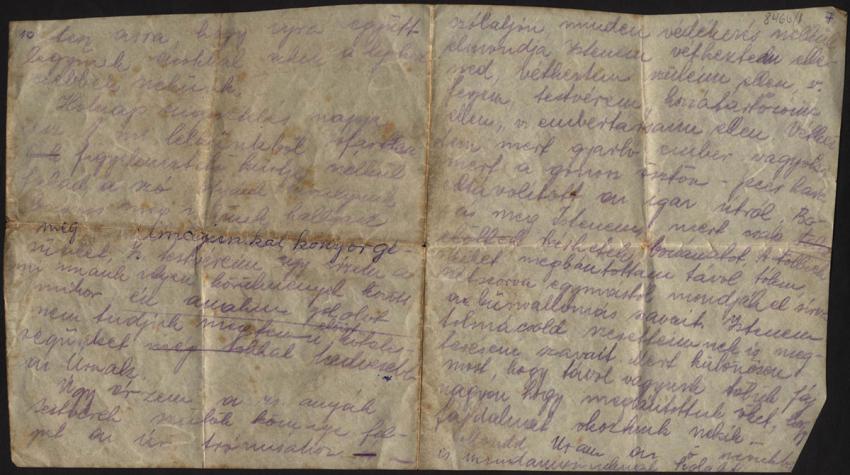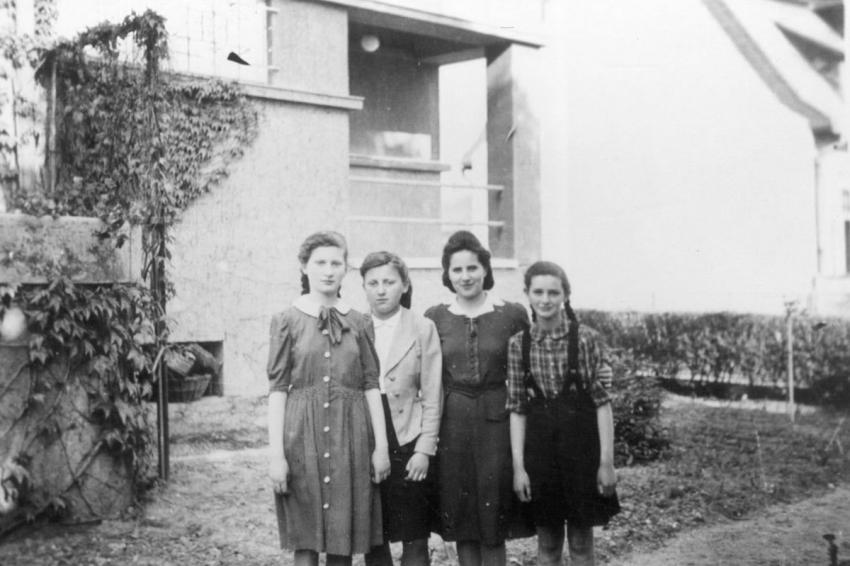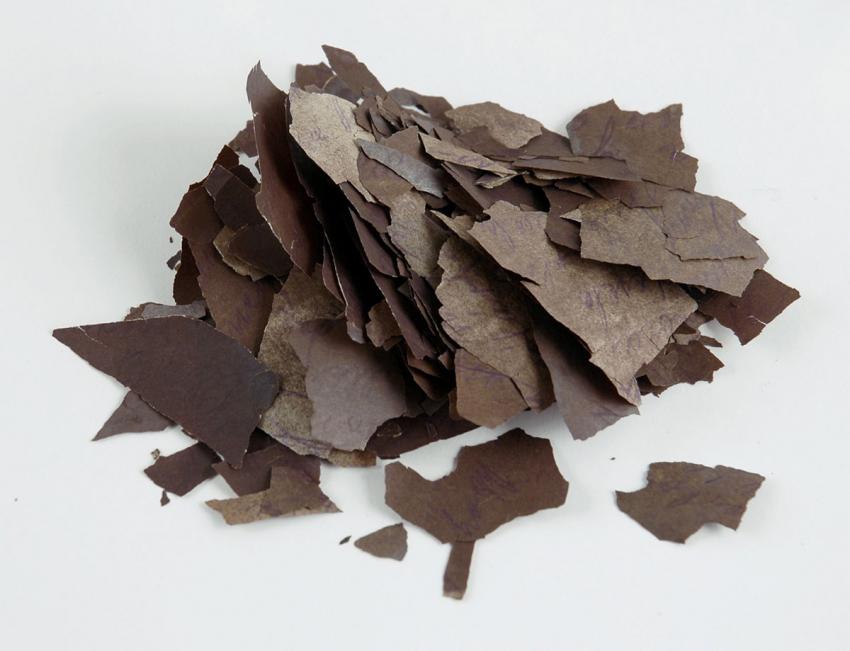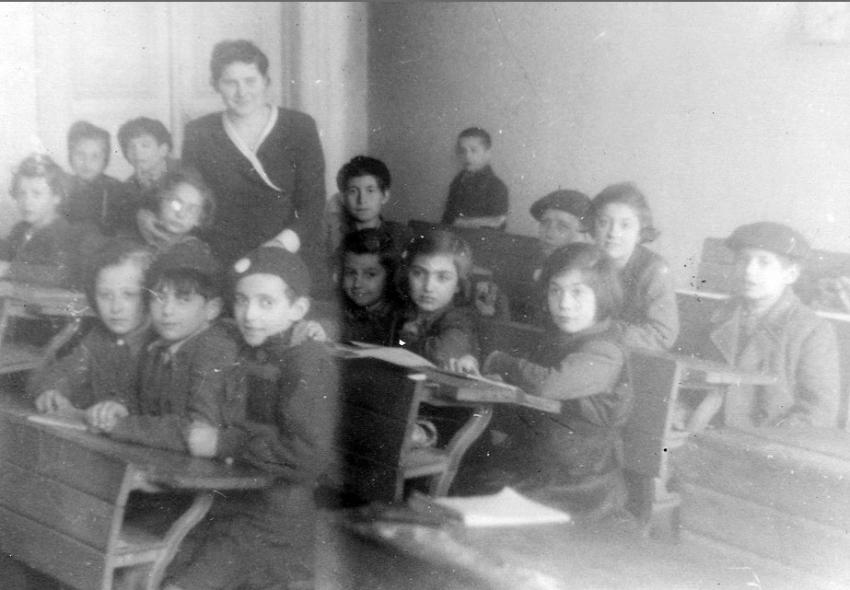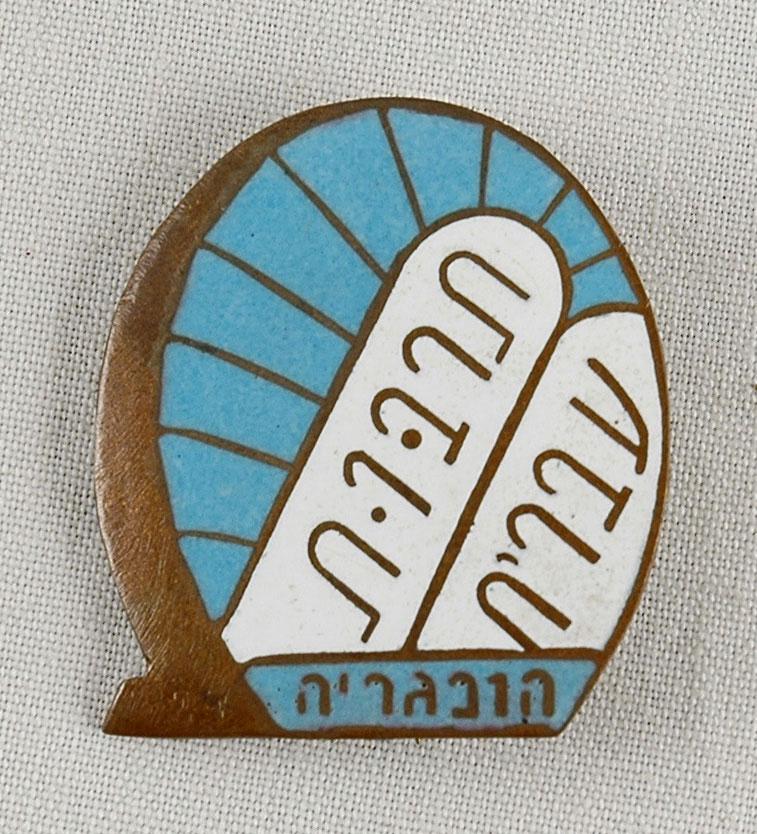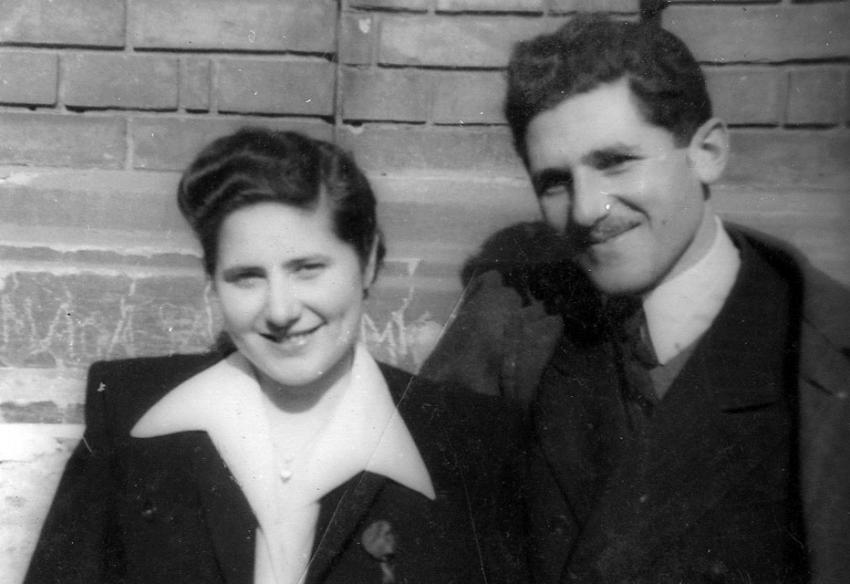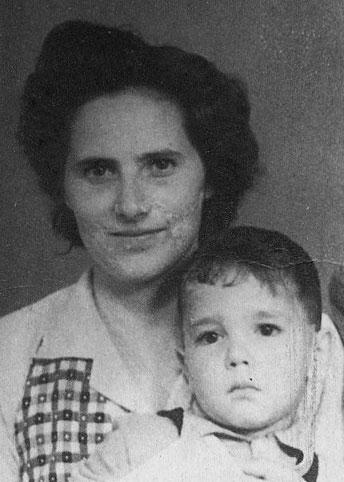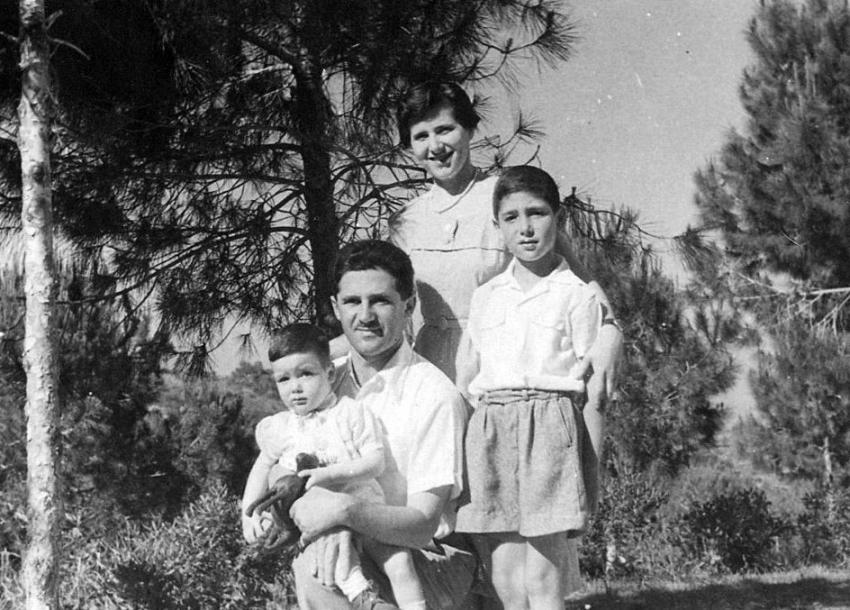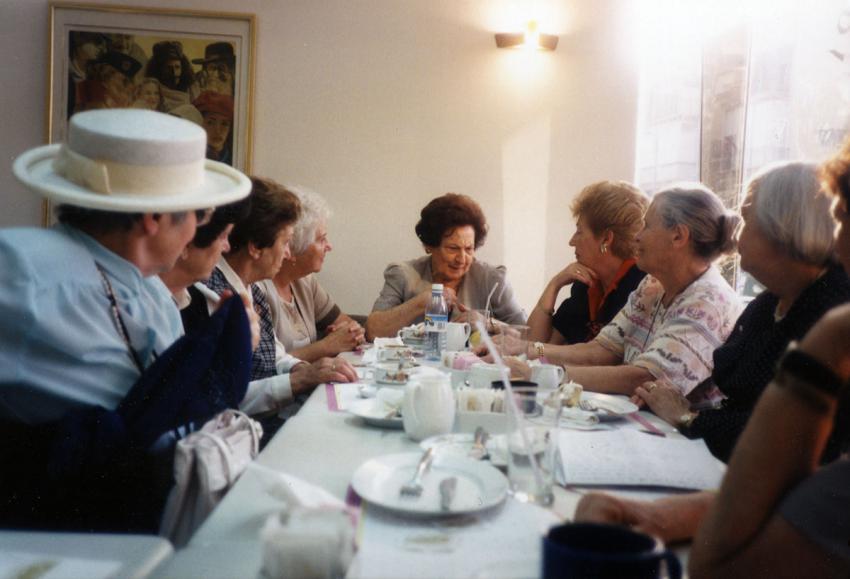Livia Koralek (today Chana Spiegel), was born in 1921 in Gyor, Hungary. She completed her teachers’ training course in 1940 and was given a teaching job in a Jewish school in the town of Csorna. Prior to this, women had not been employed at the school, but as most of the men had been sent away to labor camps by the Fascist authorities, there was a shortage of male teachers.
When the Germans invaded, the school was closed down, and Chana returned home to her parents in Gyor. In June 1944, two weeks after their incarceration in the ghetto, Chana and her parents were deported to Auschwitz. In August, Chana was transferred to the Parschnitz camp in the Sudetenland, where she worked in a factory that produced aircraft parts.
On the eve of Yom Kippur (the Day of Atonement), at the request of her friends, Livia addressed a speech to the women in the camp, in which she spoke of their capacity to give each other love, despite the terrible conditions.
The women did not eat the bread they received on Yom Kippur – they hid it under their pillows. On Passover, they tried to conduct a Seder, but the Germans disbanded it. During the week of Passover, Livia ate no bread.
Livia’s speech:
On behalf of everyone here, I beg G-d’s forgiveness, for we are guilty, we have cheated, stolen and found fault. We have caused pain to our parents, relatives, siblings and friends. We have hurt them because we are but flesh and blood, because the evil inclination clung to us, and led us astray from the path of justice and righteousness. We ask that G-d forgive us in the name of our loved ones, for we are far away from all those we love, and cannot ask their forgiveness. Now that we are so far from them, it grieves us that we caused them pain. May this Yom Kippur be a day of pardon, forgiveness and atonement, and may G-d forgive us for all our iniquities. We ask G-d to hear our entreaties: to hear the prayers of the mothers, and to feel their yearning for their babies and little children. May G-d hear the prayers of the women who wish to see their husbands, and the prayers of the young ones, who long to be once more in the bosom of their families, with their mothers, fathers, grandmothers and grandfathers. We all long to see our loved ones, and believe in miracles; we believe that all our families, relatives and loved ones feel as we do here in this cold, depressing and miserable camp. We promise to be righteous and good. True, this is not easy as we are all sad, hungry and cold, but here in this camp, we must try and be tolerant. I remember that our brave and holy rabbi of Gyor gathered us together in the ghetto on the Friday night before his deportation to Auschwitz, and in the Sabbath eve prayers, he spoke of love, of the fact that however much is given to others, love still remains in the heart of the giver. I remember his last sermon, given on Friday night in the camp huts to those awaiting deportation. Amongst other things, he said:
“G-d is not man’s sanctuary, but rather man is G-d’s sanctuary. It is easy for man to retain his humanity in a beautiful home, but let us prove our humanity here in the overcrowded huts too. Here too, where we are given a 10th, a 20th, or a 25th of a tiny room, we must try to preserve our human dignity.”
My friends, my sisters, let us recite the prayer ‘Because of our sins, we were exiled from our land, and we were taken far away from our home.’
We recite our prayers and our entreaties to G-d from memory, without prayer books, but our prayers burst forth from a full and breaking heart, for we believe that on this holy day, G-d will judge all his creations, and will forgive us all. On this holy day, we must withstand this test, we must overcome our hunger, and make do with the small ration of bread that we receive daily after a hard day’s work, and not touch anyone else’s ration. We must observe the commandment “Thou shalt not steal”, for if someone takes another’s daily ration, that person will have nothing to eat the whole day, and will be greatly weakened. We all receive the same small ration, and we must make do with it. Our G-d and G-d of our forefathers, forgive our iniquities on this Yom Kippur, hear our prayers, see our suffering, and bring us a good year. Free us from the suffering inflicted by the Nazi foe, and return us to our families. I believe that G-d will hear our prayers on this holy day, that he will wipe the tears from our eyes, and that he will answer us in the words of the prayer: “I have forgiven”.”
Livia was liberated, and then contracted typhus. After she recovered, she decided to return to teaching, and in August 1945, she arrived in Budapest and was directed to the newly established Hebrew school “Tarbut” by the leader of the community.
The schoolchildren there were mainly Jewish orphans. In time, the school’s founder, Aladar-Yehuda Spiegel, became Livia’s husband - they married in January 1947, and in December of that year, their first son Uri was born.
The Tarbut school was active for 4 years, but in 1949 it was closed by the Communist authorities. Chana and her husband waited a year for emigration permits, and after obtaining false documents, they made Aliyah in 1950, reaching Israel via Romania and Italy. Chana and her husband have 2 sons, Uri and Avishai, and are blessed with many grandchildren and great-grandchildren.
Yad Vashem Artifacts Collection
Gift of Chana (Livia Koralek) Spiegel, Bnei Brak, Israel
